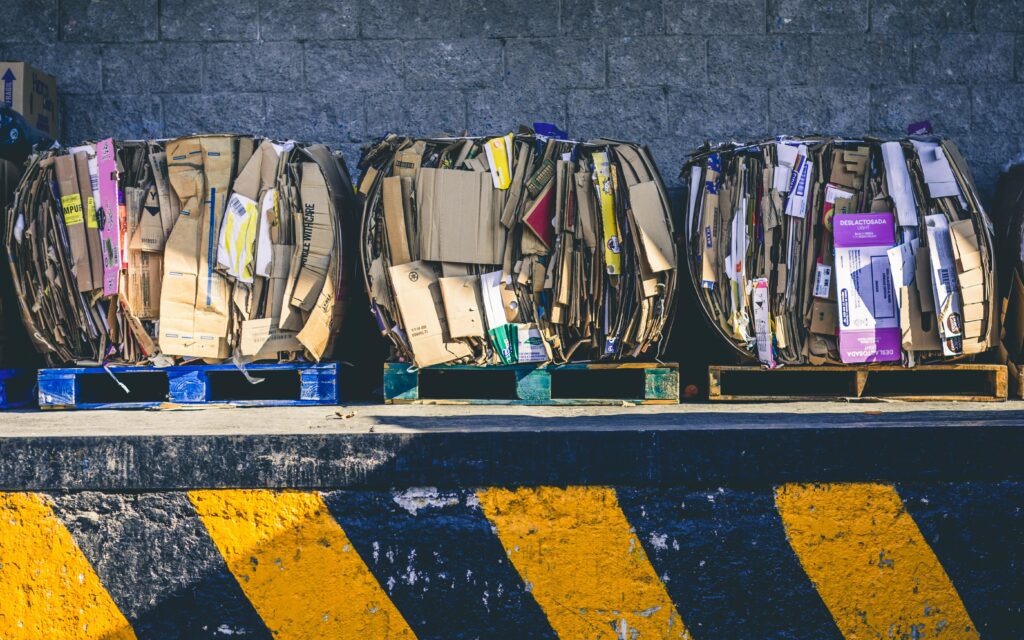The EU Directive on Packaging and Packaging Waste (94/62/EC) is being transposed into law across the European Union (EU). The German Packaging Act, which has been in place since 2019, now includes even more extensive requirements for product packaging beginning on July 1, 2022.
If you have been exempt before, you likely no longer are. This act applies not just to Business to Consumer (B2C) businesses, but now also to Business to Business (B2B) companies.
If you find yourself needing to understand and meet these new German Packaging Act requirements, we’ll explain what you need to know about the new regulations and the actions you need to take.
EU Directive on Packaging and Packaging Waste
The EU Directive on Packaging and Packaging Waste (94/62/EC) restricts hazardous substances in packaging in order to protect the environment from these materials. It includes requirements for:
- Registration of products
- Reporting on the status of those products and their recycling
- Recycling in each EU member state where a company is producing
The EU Packaging Directive covers all household, commercial, and industrial packaging waste in some member states, while in other states it is being expanded to cover almost all types of packaging, including beverage containers.
Like all EU directives, the Packaging Directive has to be transposed into national law at the member state level. This means there is some variability in how and when laws are implemented in each country.
In Germany there is an increase in the scope of the requirements that went into effect on July 1, 2022. This expands the scope of the German Packaging Act (Verpackungsgesetz or VerpackG) to include almost any company who places packaged products onto the German market, regardless of whether these products are sold to end consumers.
What Were the Pre-2022 B2C Packaging Requirements in Germany?
The German Packaging Act has been in force since 2019. According to VerpackG, anyone who sold packaged products that ended up with private customers in Germany was obligated to participate in a dual system: registering with the German LUCID system and licensing their sales packaging in Germany.
What Are the New B2B Packaging Requirements in Germany?
Beginning July 1, 2022, VerpackG now applies to packaging that had previously been exempt. This affects, among other categories, B2B transport packaging, commercial packaging, returnable packaging, and packaging that contains dangerous substances or is an endangerment in the recycling process. If you place such packaging onto the German market, you are now required to register in the LUCID portal.
Another major change extends to online sellers who use fulfillment service providers such as Amazon and Etsy. Online sellers using fulfillment service providers are now also required to both register with the LUCID portal and obtain the packaging license for shipping packaging. Electronic marketplace operators will need to check whether or not their traders are registered.
Failure to provide proof of compliance in a documented, verifiable form can be punished by a fine of up to €100,000. If a company is determined to be non-compliant, it will also result in loss of market access in Germany.
Meeting German Packaging Act Requirements
Germany is only one of 27 EU member states implementing the EU Packaging Directive, each in various phases and with varying consequences. This means that if you import into the EU, you must evaluate the requirements for every country in which you place your products on the market.
You must then monitor the scope of the requirements in each country as it develops through the years and determine when and if the scope expands to include your products. For example, you may have been exempt in Germany up until 2022 if you only sell products to other businesses and not to consumers. But now that may have changed for you.
There are several steps involved in evaluating and monitoring your packaging requirements:
- Determination of EU Packaging Directive compliance requirements regarding your own sales in EU member states
- Assessment of sales channels, volumes, and legal standing in each EU member state
- Registration with the responsible body in each EU member state (for example, registration with LUCID in Germany)
- Implementation of take-back systems
- Monitoring of ongoing reporting requirements

Get Help with Packaging Directive Requirements
If you are wondering where to start with all of this, Tetra Tech can help you by walking you through this process and setting up a Packaging Directive action item plan. This will keep you compliant as the various member states make changes and amendments to their national laws.
If you need help with any of these tasks, contact Tetra Tech’s product compliance experts today at [email protected]. We can help you understand the changes in scope that will affect you and support you in keeping your compliance intact in the face of changing requirements.






